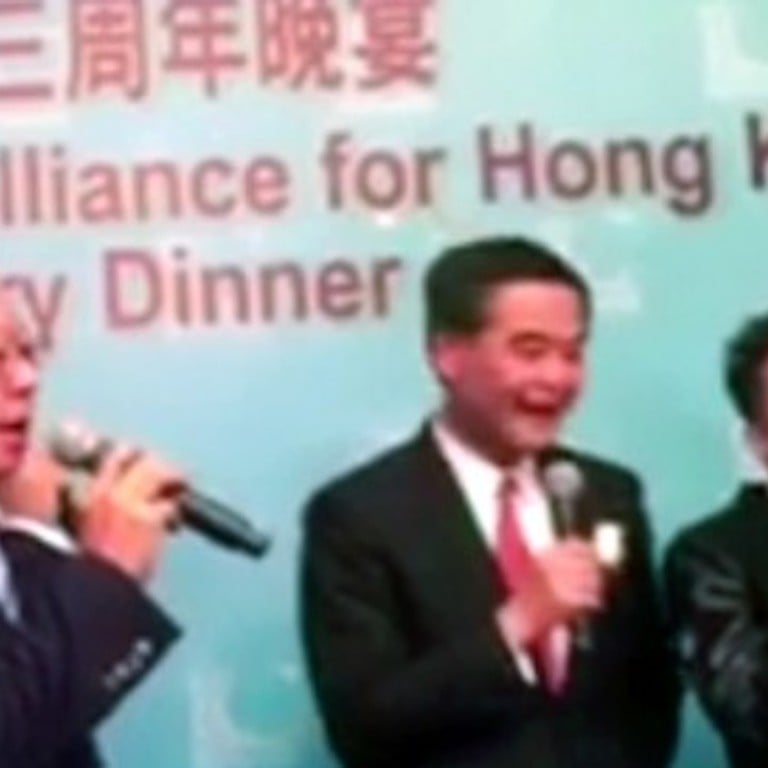
C.Y. Leung experiences copyright difficulty first-hand over his controversial pop song performance
Chief executive’s office unable to identify owner of musical recording, pointing to law’s complexity, pan-democrats say
Leung Chun-ying’s office is having trouble identifying the copyright owner of a musical recording he sang and paying a fee after he drew criticism for uploading a clip of his performance of the popular song.
The chief executive’s case showed how tricky the copyright law was, pan-democrats said, as the Legislative Council yesterday moved to debate controversial amendments to the law. Consideration was interrupted by quorum bells 25 times over 4.5 hours.
A month after Leung posted a clip of his performance of I Like You by the now-disbanded Beyond at a political party’s anniversary dinner – and came under fire by netizens who accused Leung of violating copyright law – lawmaker Raymond Chan Chi-chuen of People Power was still pressing for an answer during Legco’s question time yesterday on whether Leung was in breach.
READ MORE: Sour note? Hong Kong copyright bill opponents slam CY Leung for singing another’s song
Secretary for Commerce and Economic Development Greg So Kam-leung told Chan: “After the event the CE’s office made earnest efforts to identify the owner, including liaising with the organiser and the production company of the event that evening, as well as a company that releases relevant … recording products.”
Leung’s office was told that the rights for the recording of the background music did not belong to the company it contacted.
“Can ordinary people follow the CE’s example, paying for the copyright only after breaching it? Or is our CE privileged?” Chan asked. So replied that anyone could enter a retroactive agreement with a copyright owner.

